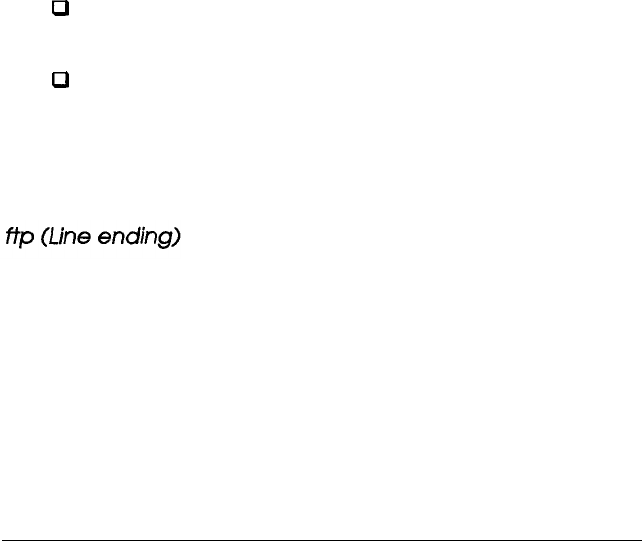
Technical
For programmers’ information, the Ethernet Card TCP/IP
mode responds only to arp packets and to TCP/IP connections
made to socket number 0x0203 and the ftp socket. You must
use lpr protocol to send data to socket 0x0203. Also, connection
attempts to other sockets will meet with no response.
Instead of lpr, which may strip control characters, (use - 1 to
avoid this), ftp may be used to print. Enter ftp, then open the
Ethernet Card by entering its host name (for example, “open
Allison”). A file may be printed simply by sending it (“send
filename”). You can use console commands or Scripts to
automate this process, and create ftp spool queues.
Filters for ftp and lpr
Both ftp and lpr have output filters which are capable of:
0
translating a UNIX line-end to a normal line-end by
inserting a carriage return code
0
sending a form feed code at the end of a file in order to
eject a page.
The means of invoking these filters differ between ftp and lpr
as follows:
As a default, ftp runs with binary file transfer. This may be
changed to ASCII file transfer by simply entering the
command “ASCII” on the ftp command line. When in ASCII
mode, the Ethernet Card will convert incoming UNIX
line-ends to include a carriage return. To change back to
BINARY mode, enter the command “BINARY” on the ftp
command line.
5-6 using UNIX


















